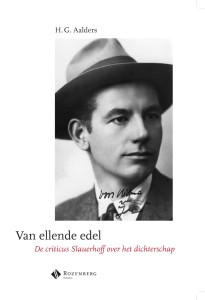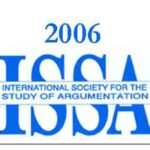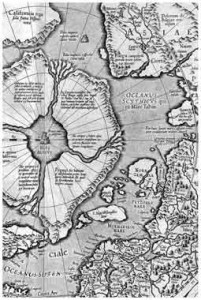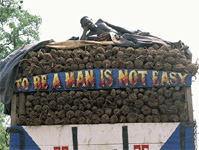Van ellende edel ~ Bibliografie
 Abrams, M.H. – 1953 The Mirror and the Lamp. Romantic Theory and the Critical Tradition. Oxford University Press. Londen / Oxford / New York.
Abrams, M.H. – 1953 The Mirror and the Lamp. Romantic Theory and the Critical Tradition. Oxford University Press. Londen / Oxford / New York.
Akker, W.J. van den – 1984 ‘En marche vers le ciel. Over “Het lied der dwaze bijen”’. In: De revisor 11 (1984) 4 (aug): 72–79,85.
Akker, W.J. van den – 1985 Een dichter schreit niet. Over de versexterne poëtica van M. Nijhoff. 2 dln. Proefschrift Utrecht. Veen. Utrecht.
Akker, W.J. van den – 1987 ‘De schrijver in een impasse; over “De schrijver” van M. Nijhoff (I)’. In: De nieuwe taalgids 80 (1987) no. 5: 386–406.
Akker, W.J. van den en G.J. Dorleijn – 1985 ‘Stemmen uit de redactie. Een documentatie over het redactiebeleid van De gids tussen 1916 en 1926’. In: W.J. van den Akker e.a. (red.), Traditie en vernieuwing. Opstellen aangeboden aan A.L. Sötemann. Veen. Utrecht / Antwerpen: 146–177.
Anbeek, T. – 1996 Het donkere hart. Romantische obsessies in de moderne Nederlandstalige literatuur. Amsterdam University Press. Amsterdam.
Anbeek, T. – 1999 Geschiedenis van de literatuur in Nederland, 1885–1985. Arbeiderspers. Amsterdam / Antwerpen. 5de, herz. dr. (1ste dr. 1990).
Bai Juyi – 2001 Gedichten en proza. Vertaling en toelichting W.L. Idema. Atlas. Amsterdam / Antwerpen.
Bakker, S. – 2002 ‘J. Slauerhoff’. In: A. Zuiderent, H. Brems en T. van Deel (red.), Kritisch lexicon van de moderne Nederlandstalige literatuur. 86ste aanv., aug.
Baudelaire, Ch. – 1976 O’Euvres complètes II. Éd. C. Pichois. Gallimard. Parijs. Bibliothèque de la Pléiade no. 7].
Baudelaire, Ch. – 1995 De bloemen van het kwaad. Vertaling en commentaar P. Verstegen. Van Oorschot. Amsterdam [Franse bibliotheek – klassiek]. Tweetalige uitgave (integrale vertaling van de 2de druk van Les Fleurs du mal. Poulet-Malassis et De Broise. Parijs 1861)
Bergh, Hans van den – 2002 ‘Paul Verlaine – voorvechter van het symbolisme?’. In: De tweede ronde 23 (2002) 3 (herfst): 91–99 [Verlaine-nummer].
Bergh, Herman van den – 1918 ‘Studiën (tweede reeks) VI: Van grondslag en onderscheid’. In: Het getij 3 (1918): 192–196. Ook in: idem, Nieuwe tucht. Studiën over litteratuur. De Spieghel. Amsterdam z.j. [1928]: 7–13. Read more
De wereld draait door ~ Van Dis en Meinderts over de nalatenschap van Slauerhoff (April 2014)
Het Letterkundig Museum in Den Haag bemachtigde de literaire nalatenschap van zwervend dichter en schrijver J.J. Slauerhoff. Adriaan van Dis en museumdirecteur Aad Meinderts lichtten toe wat er in de kist en vijftig dozen werd aangetroffen.
VARA ~ De wereld draait door ~ april 2014
ISSA Proceedings 2006 – Ehninger’s Argument Violin
 Douglas Ehninger’s theoretical gem, “Argument as Method” (1970), introduces us to two unsavory debate characters. First, there is the “neutralist” – an interlocutor who eschews commitment at every turn. Following the Greek philosopher Pyrrho, the neutralist thinks that since nothing can be known, standpoints should float freely, unanchored by the tethers of belief. The neutralist’s counterpart is the “naked persuader” – someone who approaches argument like Plato’s Callicles – clinging doggedly to preconceived beliefs and resisting any shift no matter how compelling the counterpoints (Ehninger 1970, p. 104).
Douglas Ehninger’s theoretical gem, “Argument as Method” (1970), introduces us to two unsavory debate characters. First, there is the “neutralist” – an interlocutor who eschews commitment at every turn. Following the Greek philosopher Pyrrho, the neutralist thinks that since nothing can be known, standpoints should float freely, unanchored by the tethers of belief. The neutralist’s counterpart is the “naked persuader” – someone who approaches argument like Plato’s Callicles – clinging doggedly to preconceived beliefs and resisting any shift no matter how compelling the counterpoints (Ehninger 1970, p. 104).
Naked persuaders and neutralists each have difficulty engaging in argument, but for different reasons. According to Ehninger (1970, p. 104), argumentation is a “person risking enterprise,” and by entering into an argument, “a disputant opens the possibility that as a result of the interchange he too may be persuaded of his opponent’s view, or, failing that, at least may be forced to make major alterations in his own.” In this account, naked persuaders are hamstrung by their unwillingness to risk the possibility that the force of reason will prompt alteration of their views. Neutralists, on the other hand, prevent the “person risking enterprise” from ever getting off the ground in the first place, since they place nothing on the table to risk.
Ehninger’s unsavory characters illustrate how the concept of standpoint commitment has salience in any theory of “argument as process” (Wenzel 1990). To reap the full benefits of the process of argumentation, interlocutors must adopt stances vis-à-vis their standpoints that strike an appropriate balance between perspectives of the naked persuader and the neutralist. For Ehninger (1970, p. 104), such a balanced posture consists of “restrained partisanship,” where advocates drive dialectic forward with tentative conviction, while remaining open to the possibility that the course of argument may dictate that their initial standpoints require amendment or retraction. Finding this delicate balance resembles the tuning of violin strings – a metaphor that underscores his point that the proper stance of restrained partisanship must be tailored to fit each situation.
The public argument prior to the 2003 Iraq War offers a clear example of a poorly tuned deliberative exchange. While several official investigations (e.g. US Commission 2005; US Senate 2004) have explained the breakdown in prewar decision-making as a case of faulty data driving bad policy, this paper explores how the technical concept of foreign policy “intelligence failure” (Matthias 2001) can be expanded to offer a more fine-grained explanation for the ill-fated war decision, which stemmed in part from a failure of the argumentative process in public spheres of deliberation. Part one revisits Ehninger’s concept of standpoint commitment, framing it in light of related argumentation theories that address similar aspects of the argumentative process. This discussion paves the way for a case study of public argument concerning the run-up to the 2003 Iraq War. Finally, possible implications of the case study for foreign policy rhetoric and argumentation theory are considered. Read more
Van Linschoten’s Itinerario 1598, First Book, Chapter One: Discours of Voyages into y East & West Indies

Frontispiece: Gerard Mercator’s map of the Arctic, published in his atlas of 1595. This map explains why the Dutch, discovering Spitsbergen, believed they had run into Greenland.
Being young and living idly in my native country, sometimes applying myself to the reading of histories and strange adventures, wherein I took no small delight, I found my mind so much addicted to see and travel into strange countries, thereby to seek some adventure, that in the end to satisfy myself I determined and was fully resolved for a time to leave my native country and my friends (although it grieved me). Yet the hope I had to accomplish my desire together with the resolution taken in the end overcame my affection and put me in good comfort to take the matter upon me, trusting in God that he would further my intent. Which done, being resolved, I took leave of my parents who as then dwelt at Enkhuysen, and being ready to embark myself I went to a fleet of ships that as then laid before Texel, weighing the wind to sail for Spain and Portugal. I was determined to travel to Sevilla, where as then I had two brothers that had gone there several years before; so to help myself the better and by their means to know the manner and customs of those countries and also to learn the Spanish tongue.
And the 6th of December in the year of our Lord 1576 we put out of Texel with about 80 ships and set course for Spain. 9 December we passed between Dover and Calais […]. Upon Christmas Day we entered into the river of St. Lucas de Barameda [Sanlucar de Barrameda] where I stayed two or three days and then traveled to Sevilla. On the first day of January I entered the city where I found one of my brothers. And although I had a special desire presently to travel further, yet for want of the Spanish tongue, without which one can hardly pass the country, I was constrained to stay there. In the mean time it chanced that Don Henry, the King of Portugal died, which caused great consternation and debate in Portugal for reason that the said King by his will and testament made Philip King of Spain, the son of his sister, lawful heir to the throne of Portugal. The Portuguese, always deadly enemies to the Spaniards, were wholly against it and elected to their King Don Antonio, Prior de Ocrato, brother’s son to the King that died.
The King of Spain upon receiving this news prepared himself to go into Portugal to receive the crown, sending the Duke of Alva before him to cease the strife and pacify the matter. In the end, partly by force and partly by money, he brought the country under his subjection. Thereupon many men went out of Sevilla and other places into Portugal, where they hoped to find some better means. All was quiet in Portugal and Don Antonio was driven out of the country. My brother fell sick to a disease called Tuardilha, which at that time reigned throughout the whole country of Spain, whereof many thousands died; and among the rest my brother was one [died]. Not long before the plague had been so great in Portugal that in the timespan of two years 80,000 people died in Lisboa; after which plague, the said disease ensued which wrought great destruction.
On 5 August, having some understanding in the Spanish tongue, I placed myself with a Dutch gentleman who was determined to travel into Portugal to see the country. We departed from Sevilla on 3 September and after eight days arrived at Badajos, where I found my other brother following the Court. At the same time died Anne of Austria, Queen of Spain, the King’s fourth wife; sister to Emperor Rodolphus and daughter to the Emperor Maximilian. This caused great sorrow through all Spain: her body was conveyed from Badajos to the cloister of Saint Lawrence in El Escorial, where with great solemnity it was buried. After having traveled by several towns we arrived at Lisboa on 20 September, where at the time we found the Duke of Alva being Governor for the King of Spain; the whole city making great preparation for the coronation of the King. While staying in Lisboa I fell sick through the change of air and corruption of the country. During my sickness I was seven times let blood, yet by God’s help I escaped. […] About the same time the plague, not long before newly begunne, began again to cease, for which cause the King till then had deferred his entrance into Lisboa.
On the first day of May, 1581 the King entered with great triumph and magnificence into the city of Lisboa, where above all others the Dutch had the best and greatest commendation for views, which was a bridge that stood upon the river side where the King must first pass as he went out of his galley to enter into the city, being beautified and adorned with many costly and excellent things most pleasant to behold, every street and place within the city being hanged with rich clothes of tapestry and arras. In the same year on 12 December died the Duke of Alva in Lisboa in the King’s palace. During his sickness over a period of fourteen days he received no sustenance but only women’s milk. […]
From The Web ~ openDemocracy.net
http://www.opendemocracy.net/
– is a digital commons not a magazine – a public service on the web not a commodity
– is an independent, public interest, not-for-profit; a counter to the corporate media
– champions human rights
– seeks out and debates forms of democratic change
– delights in good ideas vigorously debated and argument backed by investigation
– critiques vested interests
– supports pluralist inclusion without populism and tries to a give voice to those marginalised
– tries neither to blink at the crisis of government nor cultivate alarmism
– opposes fundamentalisms, including market fundamentalism
– regards the freedom and liberty of others as our own
– practices ‘openness’, rather than grasp at stultifying ‘neutrality’
– publishes under Creative Commons licensing
– supports peace-making and reconciliation
– is committed to global education and encouraging good and creative writing
– welcomes a range of forms to enable us to respond swiftly and interrogate deeply
The openDemocracy model
We have an open, federal organisation that reflects our values in the architecture of the website and the way we operate, with Sections that are editorially independent, do their own publishing and raise their own funding – while the Main Site publishes on all general issues, inspires and hosts new debates, encourages guest editors and manages production and the business side.
To Be A Man Is Not Easy ~ Dollars In The Wall. Interview With Mr. Babbs Haruna From Nkoranza
 You know it is difficult to make money here in Ghana so that’s why I decided to go to Libya. Twice I went there and both times I had bad luck and returned empty handed. But as soon as I have enough money I will go for a third time. Until I succeed.
You know it is difficult to make money here in Ghana so that’s why I decided to go to Libya. Twice I went there and both times I had bad luck and returned empty handed. But as soon as I have enough money I will go for a third time. Until I succeed.
My second attempt to make money in Lybia was in 2003. I learned from my first trip and so I took another route. To Bawku, the border town, and from there with several trucks and vehicles to Agadez, which is a desert town in Niger. That road to Agadez by the way is the worst in West Africa, worse than driving through the desert itself. Humping and bumping through deep potholes in the road, broken vehicles everywhere, mummified cow-skeletons along the road and a burning sun. So, up to Agadez the route was the same as the road I traveled before, but once in Agadez, where you pass straight into desert land, I made a different choice from my first journey. It costs more but it is worth it if you have the money. You wait until there are enough people, 200 in all, and then you are pulled into a large truck, the type we call ‘combine’, and that truck brings you right through the desert where there is no road to a village called Durku. That is the last village in the country of Niger, after that you are in Libya.
We were with over 200 people in that lorry, packed like fish standing on their tails. It’s a miracle that we did eventually arrive. After Durku there is nothing anymore except sand and stones and you wait. You may wait one week or three weeks if you are lucky but some can spend four months or more over there before they find transport to Libya.
Staying in the village of Durku gives a problem for each day you have to eat, at least something. The water is free for there is a natural water source over there. Everybody is careful with his money because it is needed for the connection car to Libya, cars that are run by Libyans and costs 60,000 CFA per person. That is the amount you pay but you also have to have money at hand to pay for a present for the driver for there are always more people than cars. These connection people make good business. Now if you are not careful and spend too much on food while waiting for your connection and you have not enough to bribe them then you can go back to Ghana and have to start all over again!
I took a connection car and went straight and painlessly to Libya, to the town of Saba. The other border town is called Black, that’s where I went the first time when I crossed to Libya, which was in 1997.
Let me tell you about that first time. That time I took the Mount Hogar route, which is less costly but much tougher. It may cost less money but has claimed a lot more lives. That first time I suffered too much before I reached Libya. It took me 12,000 CFA to pay a guide in Agadez and a lesser amount for a car that brings you to the foot of the Hogar Mountain. There you are all dropped in the sand and that is it. The cars return and you are left to yourself. You and your guide climb over the Mount Hogar which is very difficult and if you make it you walk for a week by foot through the sand and you feel thirsty or sometimes you feel nothing, you just walk, only walk. It is a horror. It is important to dodge the official borders so you cross somewhere secretly into Libya. That first time it took me three months to go from Ghana to Black in Libya. Some got sick, some started acting abnormally, some also died. Read more



